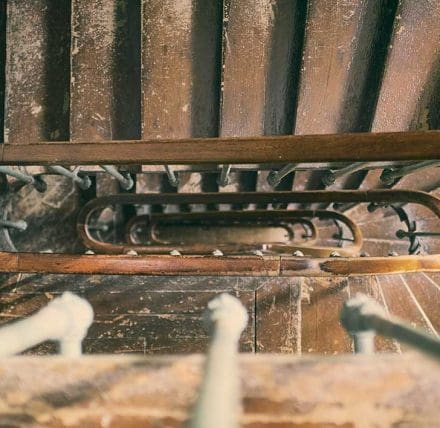


Case law update - Hill vs Angus Council - Falling down is not always someone else's fault
A recent Court of Appeal decision highlighted the importance of assessing the credibility and reliability of witnesses and the relevancy of the evidence being presented to the court.
The case concerned an Arbroath man, Mr Hill, who suffered an injury after falling down a flight of stairs in a dark communal stairwell that was poorly lit. The stairwell was in a block of flats owned by Angus Council. Mr Hill raised an action against the council on the basis it had been made aware of the defective lighting in the stairwell. Mr Hill alleged that some of his neighbours had previously reported the lighting issue to the council and in failing to replace the defective light, the council had failed in its common law duty to rectify the hazard. Liability was denied on the basis that there had been no prior reports of defective lighting made to the council and on the basis that Mr Hill materially contributed to the accident.
At Proof, Mr Hill gave evidence along with three of his neighbours. The Sheriff hearing the Proof was of the view that there were too many inconsistencies in the evidence given by Mr Hill and his three neighbours for Mr Hill’s claim to succeed. Mr Hill’s own evidence was found to be inconsistent with the description of the accident he offered to medical staff treating his injuries following the accident. The evidence given by his neighbours did not help to shed any real light on how the accident actually happened. One neighbour was found to be unreliable due to the inconsistencies in her evidence. The Sheriff found in favour of Angus Council on the basis that Mr Hill had failed to prove, on the balance of probabilities, that the circumstances of the accident were as he had described.
Mr Hill appealed the decision of the Sheriff at first instance on the basis that the Sheriff had been plainly wrong to attach so much weight to the hospital records and for not taking into account the evidence of the two witnesses who were found to be credible and reliable. In her judgement, Sheriff Principal Lewis determined that whilst two of the witnesses were found to be credible and reliable, their evidence did not assist the Sheriff in determining the cause of the accident. Sheriff Principal Lewis also noted the Sheriff at first instance was entitled to consider all the facts, including Mr Hill’s evidence along with other sources of evidence available, such as Mr Hill’s medical records. The appeal was dismissed.
This case illustrates the importance of assessing the credibility, reliability and perhaps crucially, the relevancy of all of the evidence being put before the court. It is for the claimant to prove their case. Inconsistencies in the claimant’s evidence will likely result in their claim being unsuccessful. The credibility and reliability of any witness will be considered together with all of the evidence before the Court.
CONTACT US
Call us for free on 0330 912 0294 or complete our online form below for legal advice or to arrange a call back.